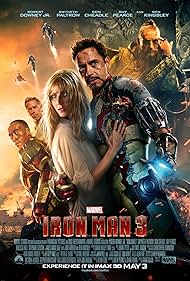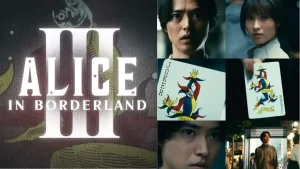
Iron Man 3 (2013), directed by Shane Black, serves as a significant chapter in the Marvel Cinematic Universe (MCU), exploring themes of identity, trauma, and personal growth. Following the events of The Avengers (2012), this film delves into Tony Stark’s (Robert Downey Jr.) psychological state as he grapples with the aftermath of the Battle of New York and the looming threat of the mysterious Mandarin (Ben Kingsley).
The film opens with Tony in turmoil, plagued by anxiety attacks and nightmares that stem from his near-death experience during the alien invasion. This vulnerability is a refreshing departure from the confident, quippy persona of Iron Man that audiences have come to know. Tony’s struggle with post-traumatic stress disorder (PTSD) adds depth to his character, showcasing a more human side of the superhero and emphasizing that even the mightiest heroes have their vulnerabilities.
The plot centers around the emergence of the Mandarin, a seemingly formidable terrorist who threatens the United States with a series of devastating attacks. As Tony’s personal life spirals, he is forced to confront this new enemy while protecting those he loves. After a series of attacks leads to the destruction of his home, Tony embarks on a journey of self-discovery that takes him far from the comforts of his high-tech lifestyle.
One of the standout elements of Iron Man 3 is its unique blend of action and humor. Shane Black’s signature style infuses the film with sharp, witty dialogue and comedic moments, making it entertaining while maintaining the tension of the narrative. The interactions between Tony and his young ally, Harley (Ty Simpkins), provide a heartfelt and humorous dynamic that adds emotional weight to the story. Their friendship serves as a reminder that heroism isn’t solely about powers and technology; it’s also about connection and support.
The film also explores Tony’s relationship with technology, particularly his dependency on the Iron Man suits. In a pivotal moment, Tony famously states, “I am Iron Man,” highlighting that his identity transcends the suit. This mantra serves as a powerful message about self-acceptance and the realization that one’s worth isn’t solely defined by external factors.
As the story unfolds, the twist involving the Mandarin’s true identity—revealing him to be an actor named Trevor Slattery (Ben Kingsley)—divides audiences. Some appreciate the subversion of expectations, while others feel it undermines the character’s potential. Regardless, the twist adds a layer of commentary on the nature of fear and perception in the media.
The film culminates in a spectacular showdown between Tony and the Extremis-enhanced soldiers, leading to thrilling action sequences that showcase the capabilities of the Iron Man suits. The climactic battle at the Malibu mansion and the finale at the Stark Expo reinforce the stakes of the story, combining action and emotional resonance.
Iron Man 3 also serves as a fitting conclusion to Tony Stark’s character arc, showcasing his growth and evolution. By the end, Tony decides to dismantle his suits and embrace a new chapter in his life, symbolizing his acceptance of vulnerability and the importance of personal connections over technology.
In conclusion, Iron Man 3 is a thoughtful exploration of Tony Stark’s psyche, offering a blend of action, humor, and emotional depth that sets it apart from its predecessors. While it may not be as universally acclaimed as the original Iron Man or The Avengers, it stands as a testament to the complexities of heroism and the journey of self-discovery, ultimately reinforcing the idea that true strength comes from within.




